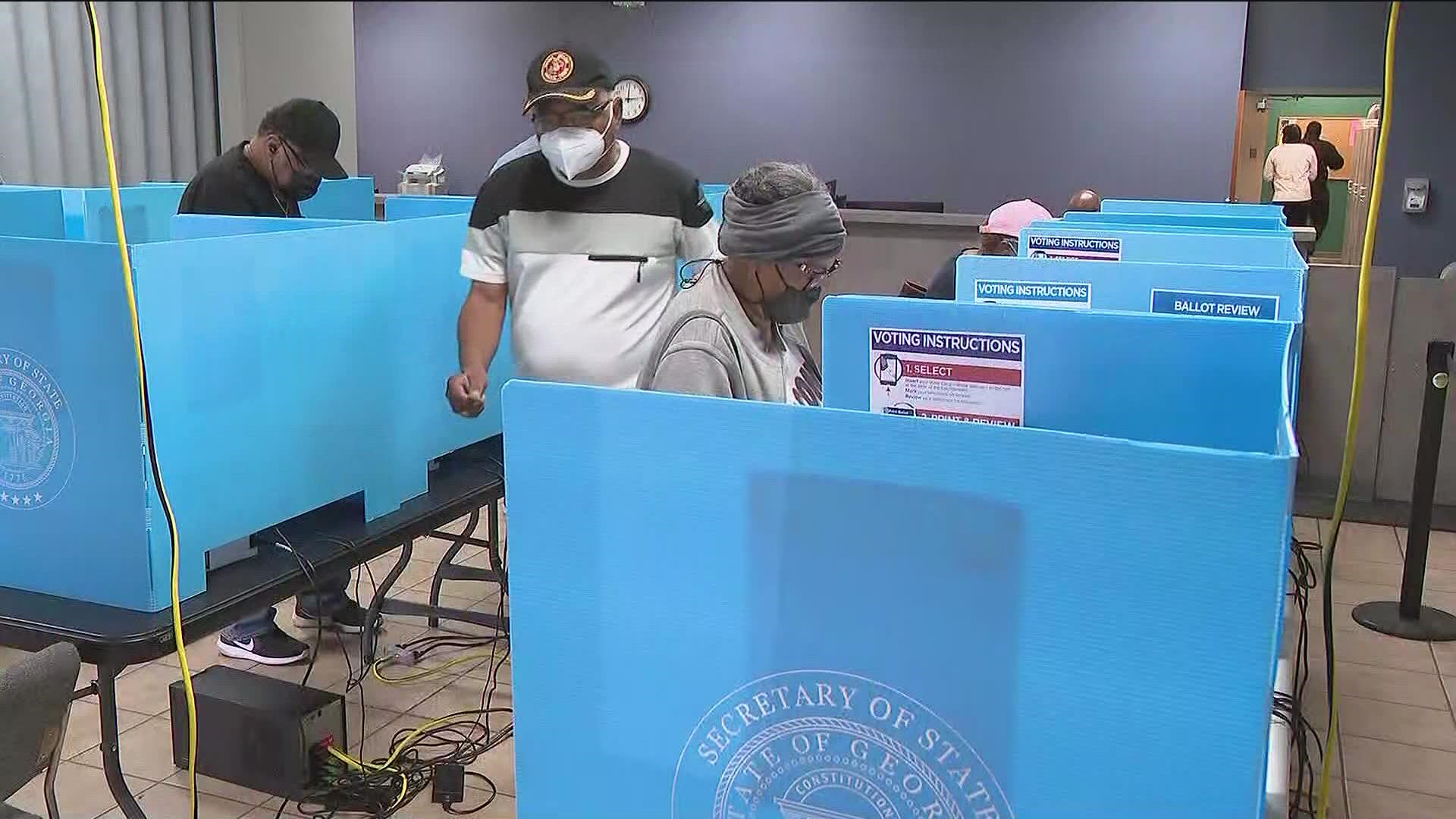ATLANTA — A recent study published in the Election Law Journal ranked Georgia 29th overall for voter access. The 2022 Cost of Voting Index looked at different categories related to voting, including registration, early voting opportunities, and absentee voting.
Each state was ranked based on obstacles to voting. The report specifically listed Georgia's ban on giving food and water to voters in line as an example. Oregon was ranked first overall and New Hampshire was ranked last.
Emory University political science professor Alan Abramowitz says the recent changes to Georgia's voting laws as a reason for the Peach State's ranking.
"I suspect that if you had done this ranking two years ago or, you know, before the most recent changes in Georgia's voting laws, that Georgia would have been ranked somewhat higher," Abramowitz said.
One of the main changes Abramowitz's reasons for Georgia's ranking is the changes to the way voters must request an absentee ballot.
This year, voters have to request ballots by printing an application and physically signing it before uploading it online, emailing it, or sending it by mail.
Abramowitz says, despite the changes, people will most likely still remain engaged in the upcoming election.
"What I would expect to see in Georgia in this year's elections is that probably it's going to be a big shift away from absentee voting and toward either early in-person voting or just Election Day voting, which might have happened anyway, given the fact that a lot of the absentee voting that occurred in 2020 was a response to the pandemic," he told 11Alive's Karys Belger.
He also stated this year's midterm turnout will be comparable to 2018.
The full study from the Election Law Journal can be found here.

